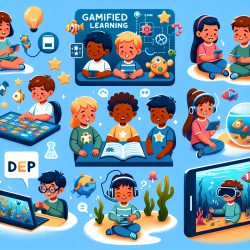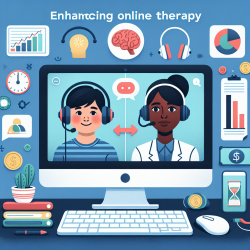Introduction
As practitioners dedicated to the developmental success of children, we are constantly on the lookout for innovative tools that can enhance cognitive development. The recent pilot study, "Development, feasibility and acceptability of a gamified cognitive DEvelopmental assessment on an E-Platform (DEEP) in rural Indian pre-schoolers," offers promising insights into how gamified assessments can be effectively utilized in early childhood education.
The DEEP Study: An Overview
The DEEP study was conducted in rural India and aimed to develop a tablet-based gamified assessment tool for cognitive abilities in 3-year-old children. The study was designed to address the lack of standardized, scalable tools for assessing cognitive development, especially in low and middle-income countries (LMICs).
Through a series of workshops with domain experts and formative household visits, the study identified six key cognitive domains integral to learning: divided attention, response inhibition, reasoning, visual form perception, visual integration, and memory. These domains were incorporated into a gamified platform, which was tested for feasibility and acceptability among rural preschoolers.
Key Findings and Implications
The pilot study revealed several important findings:
- Engagement and Acceptability: The gamified tool was highly engaging for children, with positive feedback from both participants and their mothers. This suggests that gamified assessments can be a feasible and acceptable method for cognitive evaluation.
- Performance Differentiation: Children showed variability in their performance, which indicates that the tool can differentiate cognitive abilities among preschoolers. Metrics such as game levels completed, accuracy, and completion time were effective in assessing cognitive differences.
- Scalability and Accessibility: The study demonstrated that non-specialist field workers could administer the tool, highlighting its potential for scalability in diverse settings.
Practical Applications for Practitioners
For practitioners, the DEEP study underscores the potential of gamified tools in early childhood cognitive assessments. Here are some practical applications:
- Incorporate Gamification: Consider integrating gamified assessments into your practice to increase engagement and obtain more accurate assessments of cognitive abilities.
- Targeted Interventions: Use the data from gamified assessments to identify children who may benefit from targeted interventions, thereby improving their developmental outcomes.
- Expand Research: Encourage further research into gamified assessments to validate their effectiveness and explore their application in different cultural and socioeconomic contexts.
Conclusion
The DEEP study provides compelling evidence for the use of gamified assessments in early childhood cognitive development. By leveraging the engaging nature of games, practitioners can enhance the assessment process, making it more enjoyable and informative for young children. As we continue to innovate in the field of speech-language pathology, tools like DEEP offer exciting possibilities for improving developmental outcomes.
To read the original research paper, please follow this link: Development, feasibility and acceptability of a gamified cognitive DEvelopmental assessment on an E-Platform (DEEP) in rural Indian pre-schoolers – a pilot study.










